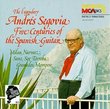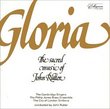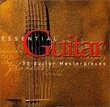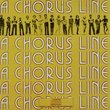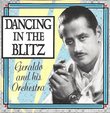| All Artists: Anouar Brahem Title: Voyage De Sahar Members Wishing: 7 Total Copies: 0 Label: ECM Records Original Release Date: 1/1/2006 Re-Release Date: 4/4/2006 Genres: Folk, International Music, Jazz, New Age, Pop Styles: Traditional Folk, Middle East, Arabic, Avant Garde & Free Jazz, Jazz Fusion, Traditional Jazz & Ragtime Number of Discs: 1 SwapaCD Credits: 1 UPC: 602498746516 |
Search - Anouar Brahem :: Voyage De Sahar
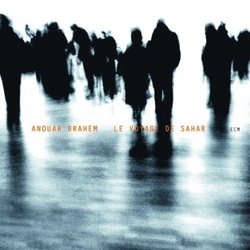 | Anouar Brahem Voyage De Sahar Genres: Folk, International Music, Jazz, New Age, Pop
Recreating the ambience that made his 2002 outing, Pas de Chat Noir, so evanescent yet indelibly memorable, Tunisian oud master Brahem continues his by-now-well-established collaboration with François Couturier (piano... more » |
Larger Image |
CD DetailsSynopsis
Amazon.com Recreating the ambience that made his 2002 outing, Pas de Chat Noir, so evanescent yet indelibly memorable, Tunisian oud master Brahem continues his by-now-well-established collaboration with François Couturier (piano) and Jean-Louis Matinier (accordion.) The trio's improvisations are miracles of weightless precision; while sounding like nobody else, they also evoke chanting medieval monks, Keith Jarrett's florid keyboard sagas, Parisian bal musette, the long-vanished Moorish kingdom of Granada via 20th-century Spanish composer Manuel de Falla, languid recollections of French impressionist Eric Satie plus dissonant gleanings from Astor Piazzolla's sardonic Argentinean neo-tangos. Despite this complex array of intellectual influences, which permeate the trio's constructions like smoke rings, their works come across as disarmingly simple and unpretentious, a tidily diffuse combination of Arabic modes, European classical disciplines and jazzy intuition. Liberated by sheer inventiveness, the trio's technical skill is so extreme that it has long since ceased to draw attention to itself. Instrumentalists of this caliber are long past needing to impress anyone but themselves. --Christina Roden Similarly Requested CDs
|
CD ReviewsAnother masterpiece from Brahem Robert Burns | Royal Oak, MI USA | 07/05/2006 (5 out of 5 stars) "Anouar Brahem's music is refreshingly original, remarkably intricate, and (perhaps most important) eminently listenable. His music transcends the "world fusion" genre in which his music is most often placed. Ever since borrowing "Astrakan Cafe" from the Chicago Public Library 5 years ago, I've absorbed his music and he's quickly become my favorite musician of all time. Some have described his stuff as "oud chamber music" and that's appropriate, but each song is essentially a jazz piece. Brahem has cited Keith Jarrett as a major influence, and you can hear why... ECM is a fitting label! Brahem has a real gift for melody; as has been said elsewhere, most "world fusion" is jangly, and this stuff is anything BUT that. To those of you who are familiar with his work already, and are now considering this album, let me assure you: it's worth it. My initial impressions were not that good; this album didn't hit me with any particular glorious strain (except "Halfouine", but of course, that was a major delight of "Astrakan Cafe"). I wondered if a previous reviewer was right when he said Brahem still had gold to mine from the vein he tapped in "Le Pas du Chat Noir". BUT this music is subtle, and when you keep listening and really listen, the rewards come. Yes, this album is very much like "Le Pas du Chat Noir", but it is no lame recycling or collection of "Chat Noir" leftovers. Nope! What you get with this album is an exquisite title track (the piano's solo is lithe and graceful), "L'Aube" is brooding but these still waters run deep, "Nuba" is a playful intermezzo. The next set runs a bit melancholy but really listen to the players meditate in "La Chambre", "Cordoba", "Halfouine", and then "La Chambre, var." All together they make an excellent extended musing. "Zarabanda" is a highlight of the track (check out the excellent accordion work) and almost worth the price of the album by itself. The last two return to brooding, but that's OK, the deep humming of the oud on "Ete Andalous" is magnificent (listen to Brahem's fingerwork as he makes the oud moan and whimper quietly - amazing - and then he picks some great lines). Accept my highest recommendation, if you want an album that bears repeated listening and never blares. Right up there (almost) with "Thimar" and "Astrakan Cafe"." Who Needs MY Opinion PBSF | San Francisco, CA USA | 04/26/2006 (4 out of 5 stars) "... the amazon.com review above nails it perfectly-- there's little I could possibly add. That said, I'll give this 4-1/2 stars because: (a) I reserve the full 5 stars only for the absolute best, and Brahem has definitely produced a couple of these during his career; and (b) this recording retreads the ground of this group's earlier outing, "Pas De Chat Noir" somewhat. Then again, if a vein isn't exhausted, why cease mining? In short, this is great music-- lovely, atmospheric, exquisite, and of a seemingly effortless fluidity." Subtle yet evocative Tennessee Flat Top Box | 08/10/2006 (4 out of 5 stars) "This disc from Tunisian Anouar Brahem is shore to gain unanimous acclaim just as his 2002 effort Le Pas du Chat Noir has. This trio has been Brahem's most successful through many recordings which have crossed from tradional, jazz and world explorations. French muscians Francois Couturier (piano) and Jean-Louis Martinier (accordion) again accompany Brahem's restrained and masterful oud (Arabic lute). This is an intimate and tender musical exploration mixing Arab-Andalous fusion, jazz, slow tango and stylised French classical music. The three musical instruments work beautifully together with Brahem's oud leading lines of introspection among the delicate whimsy of Martinier's accordion. A reprise from Brahem's 1994 disc Khomsa, Couturier's romantic and cascading piano is a highlight of the Fellini-esque medley Vague/Et la nave va. The yearning and promise of L'Aube and the title tracks haunting resonance are just two moments of real beauty."
|

 Track Listings (13) - Disc #1
Track Listings (13) - Disc #1